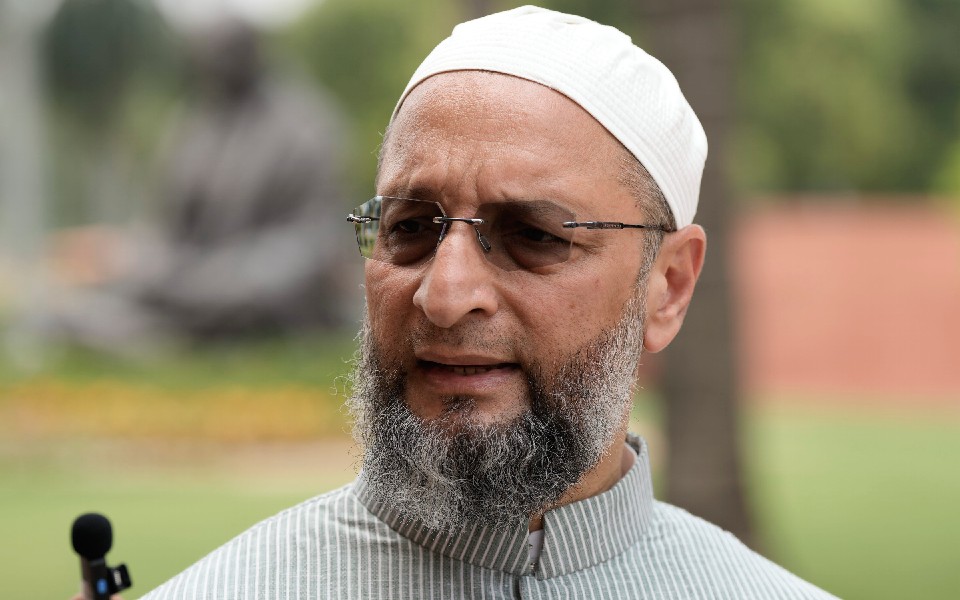Mumbai: The Maharashtra assembly on Thursday passed the stringent Maharashtra Special Public Security (MSPS) Bill by a voice vote. The Bill aims “to provide for effective prevention of certain unlawful activities of left wing extremist organisations or similar organisations.” reported the Indian Express.
The Maharashtra State Public Security (MSPS) Bill, first introduced during last year’s monsoon session by then Deputy Chief Minister and current Chief Minister Devendra Fadnavis, has been debated widely. The Opposition has raised concerns over the wording and interpretation of specific clauses and terminology within the Bill.
The law is now set to be tabled in the Legislative Council, where it is expected to pass. Following that, it will be sent to the Governor for final assent, after which it will officially become law.
The Bill’s statement of objects and reasons states that the threat of Naxalism is not only confined to remote regions of affected states but is slowly expanding into urban areas through ‘Naxal front organisations.’
The government claims that these ‘frontal organisations,’ are supporting armed Naxal cadres by providing logistics and safe refuge. According to the government, “existing laws are ineffective and inadequate to tackle this menace of Naxalism”.
The bill also points out that states like Chhattisgarh, Telangana, Andhra Pradesh, and Odisha have enacted Public Security Acts and banned 48 ‘Naxal frontal organisations,’ in order to tackle this situation.
What does this Bill state?
The Bill empowers the government to designate any suspected “organisation” as an “unlawful organisation.” It outlines four specific offences that can lead to individual punishment: (i) being a member of such an unlawful organisation, (ii) raising funds for it even without being a member, (iii) managing or helping to manage its activities, and (iv) engaging in any act classified as an “unlawful activity.”
These offences are punishable with imprisonment ranging from two to seven years, along with fines between ₹2 lakh and ₹5 lakh. Among them, the act of committing an “unlawful activity” attracts the most severe penalty, seven years of imprisonment and a fine of ₹5 lakh.
Under the proposed law, the offences are classified as cognizable, allowing authorities to make arrests without a warrant. Additionally, these offences are non-bailable, limiting the possibility of immediate release on bail.
The Bill defines ‘unlawful activity’ as any act committed by an individual or organisation, whether through actions, spoken or written words, signs, visible representations, or any other means, that poses a threat to public order, peace, and tranquility. It also includes actions that disrupt the maintenance of public order, hinder the functioning of legal institutions and personnel, or aim to intimidate public servants through the use or threat of criminal force.
The Bill also includes within the scope of ‘unlawful activity’ acts such as engaging in or promoting violence, vandalism, or any actions that incite fear and anxiety among the public. Additionally, encouraging or advocating disobedience towards established laws and institutions, as well as collecting funds or resources to support any of these activities, are considered unlawful under the proposed legislation.
When the Bill was initially introduced at the end of the 2024 Monsoon Session of the Assembly, it could not be passed as the House was prorogued the very next day. Following the Assembly elections, in which Devendra Fadnavis assumed the role of Chief Minister, the Bill was reintroduced in December. Acknowledging the concerns raised by several organisations, Fadnavis announced that the Bill would be referred to a joint select committee and reconsidered only after all viewpoints and suggestions had been thoroughly examined.
The Joint Select Committee, chaired by BJP leader and state Revenue Minister Chandrashekhar Bawankule, consisted of 25 members from both Houses of the legislature and held five meetings between March 4 and June 26 this year. During this period, the Committee received over 1,200 suggestions and objections from a wide range of stakeholders, including opposition parties, NGOs, and citizens, up to the April 15 deadline.
Objections were raised about the open-ended nature of definitions, particularly of terms like “unlawful activity.” Some organisations, such as the People’s Union for Civil Liberties (PUCL), demanded the complete withdrawal of the Bill.
Eventually, the Committee introduced three amendments to the original Bill.
1. The first amendment pertained to the “long title and preamble”. Initially, it read: “A Bill to provide far more effective prevention of certain unlawful activities of individuals and organisations and for matters connected….,”. The introduction to the amended Bill states that “since the Bill intends to destroy Urban Naxalism, the Committee opined to bring clarity on this aspect”, and accordingly changed the phrase unlawful activities of individuals and organisations to “unlawful activities of Left Wing Extremist organisations or similar organisations…”.
2. The second amendment was made to clause 5(2) of the Bill, which states that “the Advisory Board shall consist of three persons who are or have been or qualified to be appointed as judge of the High Court. The Government shall appoint the members and designate one of them as the Chairperson.” The Committee recommended that the Board should comprise a Chairperson who is or has been a judge of the High Court, and two members., one of whom shall be a retired judge and the other a government pleader of the High Court, both appointed by the state government.
3. The third amendment was made to clause 15(2). Instead of the acts defined under the Bill being investigated by a police officer not below the rank of Sub Inspector, it was proposed that the investigation be entrusted to officers of the rank of Deputy Superintendent of Police.
Let the Truth be known. If you read VB and like VB, please be a VB Supporter and Help us deliver the Truth to one and all.
New Delhi, Aug 13 (PTI): The Enforcement Directorate said on Wednesday it has arrested a woman, who claims to be an actor and a cosmetologist, under the anti-money laundering law in a case of alleged fraud and misrepresentation.
The agency said the purported links of the woman, Sandeepa Virk, with a Reliance Group executive, Angarai Natarajan Sethuraman (President, Corporate Affairs), are also under its scanner. Sethuraman, in a statement, denied any connection with Virk or any transactions related to her.
Virk was taken into custody under the Prevention of Money Laundering Act (PMLA) on Tuesday after searches were conducted against her and her associates in Delhi and Mumbai over the last two days.
A special court sent her to the ED's custody till August 14, the agency said. The woman claims to be the owner of a skin care products selling website named hyboocare.com, which the ED claimed was a "front" for money laundering.
She and her associates are being probed for allegedly exerting undue influence through "misrepresentation" and "defrauding" individuals by soliciting money under false pretences.
According to an Instagram ID of Virk, she is an actor and entrepreneur and the founder of the said website.
The federal agency said in a statement that the woman was also "in touch with" Sethuraman, former director of erstwhile Reliance Capital Limited.
She was communicating with him regarding "illegal liaisoning", the ED claimed, adding that the searches at Sethuraman's residence "confirmed" these allegations.
"Besides, diversion of funds for personal benefit has also been unearthed during the course of the search action," it said.
The ED alleged that public money worth about Rs 18 crore belonging to Reliance Commercial Finance Limited (RCFL) was disbursed to Sethuraman in 2018 by "flouting" prudent lending norms.
The funds were lent under terms that allowed a deferment of the principal amount as well as the interest, with multiple waivers granted and no due diligence conducted, it said.
The ED claimed that besides this, a home loan of Rs 22 crore was provided by Reliance Capital Limited by "violating" the prudential norms. "A large part of these loans are seen to have been eventually siphoned off and remained unpaid," it alleged.
Sethuraman, in a statement, dismissed the allegations as "baseless". He denied any connection with Virk or any transactions related to her.
Detailing about Virk's web portal, the agency said it purportedly sold FDA-approved beauty products. However, the ED said the products listed on the website have been found to be non-existent and the portal lacks a user registration option and is plagued by persistent payment gateway issues.
A scrutiny of the website uncovered minimal social-media engagement, an inactive WhatsApp contact number and an absence of transparent organisational details, all of which reinforce the finding of "non-genuine" commercial activity, the ED claimed.
"These factors, including limited product range, inflated pricing, false claims of FDA approval and technical inconsistencies, indicate that the website serves as a front for laundering funds," it said.
Another social media-hosted bio data of the woman said she is a certified cosmetologist.
The ED said several "incriminating" documents were seized during the searches and the statement of a man named Farrukh Ali, stated to be an associate of Virk, was recorded.
The money-laundering case stems from an FIR lodged by the Punjab Police.
Sethuraman said that the home loan he received from Reliance Capital was granted following due process and was secured by the property offered as collateral.





